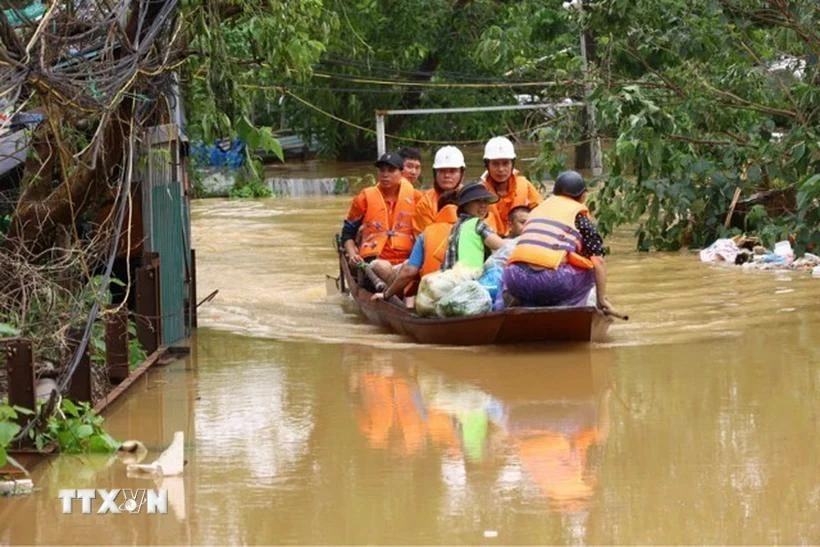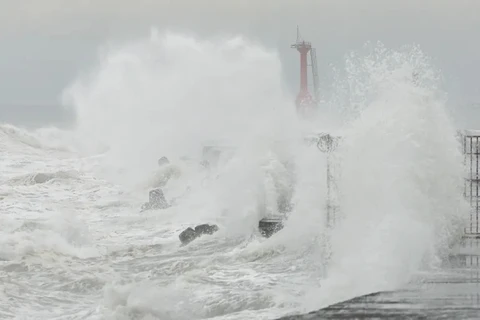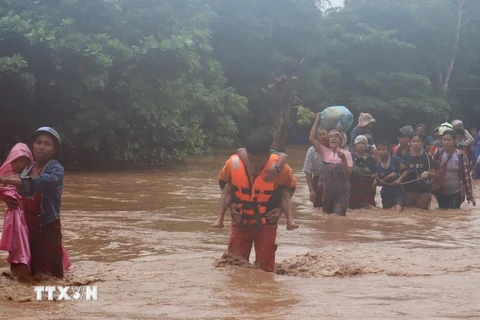
Hanoi (VNA) - Southeast Asia is likely to see higher-than-normal rainfall in the coming months which could further disrupt agriculture, tourism, and industrial output in a region already hit by a series of storms this year.
Weather forecasters predict wetter conditions from the Philippines to Vietnam through November, mainly due to La Niña phenomenon, which moves warm water towards the western Pacific Ocean and brings more rainfall over the region.
The situation could hamper recovery efforts in Vietnam, after Typhoon Yagi made landfall in September. The storm was considered the worst in decades, causing severe damage that was initially estimated at more than 81 trillion VND (nearly 3.3 billion USD).
Tourism-dependent Thailand suffered 30 billion THB (904 million USD) in damage from a wave of flooding in the North. The Philippines, which sees around nine typhoons each year, is still reeling from several deadly storms in recent months.
La Niña conditions are predicted from October to November 2024 onwards as one of the factors contributing to a chance of above-normal rainfall, across several countries in the region, according to the ASEAN Specialised Meteorological Centre.
Singapore issued a flood alert on October 14 as the inter-monsoon period brought lightning and thunder showers to the tiny city-state.
The Philippines weather agency predicts large parts of the archipelago may see above-average rainfall through the end of the year and 160% above average in January.
The increasing ferocity of tropical cyclones in the Pacific Ocean is compelling businesses and governments in the weather-prone region to consider new ways of storm-proofing./.






















